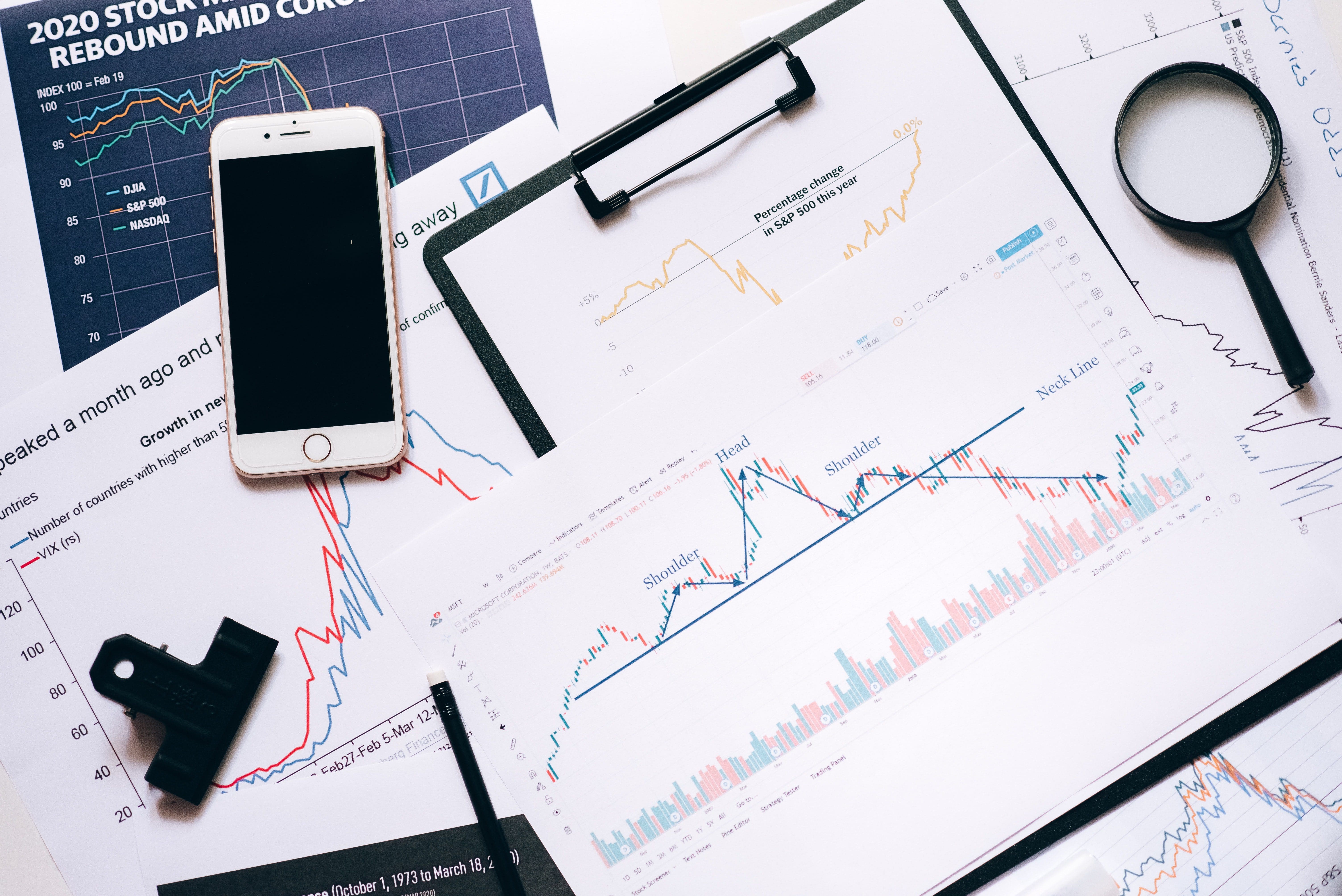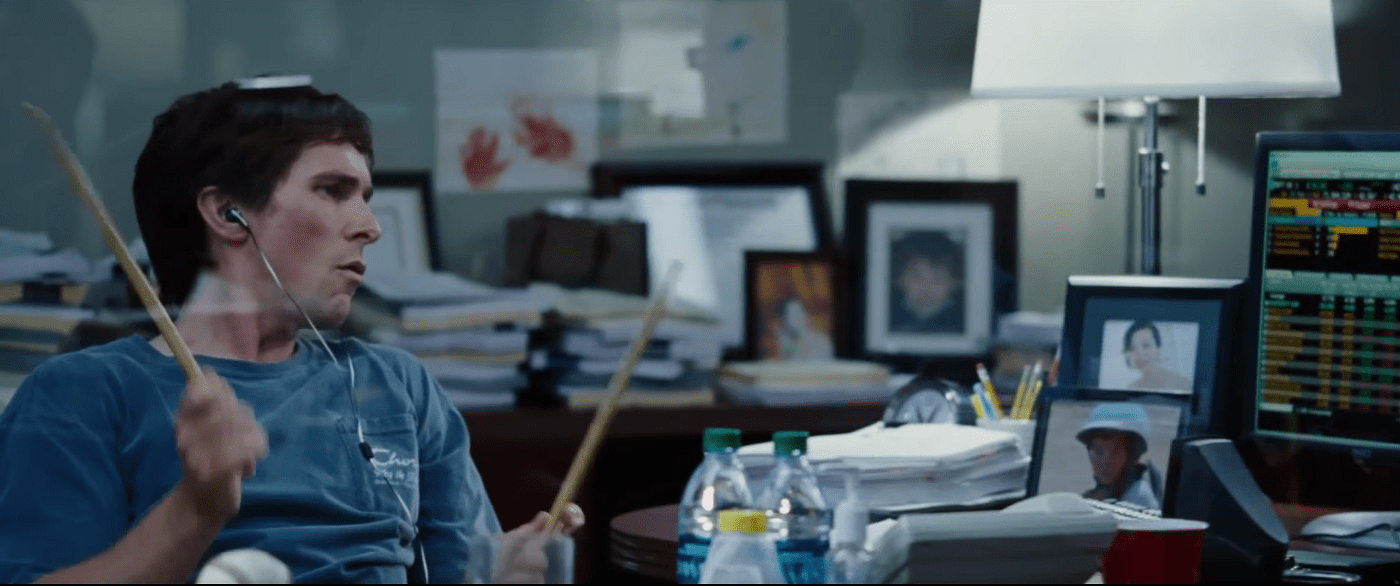The Timeless Lessons of Trading the Markets: One Movie and One Book to Help explain it All
The Timeless Lessons of Trading the Markets: One Movie and One Book to Help explain it All
Written by Katie Gomez

The market is not easy to understand, let alone make a career that revolves around it. An integral part of becoming a trader is understanding as much as possible about the markets. It’s a fascinating world to be a part of that helps you take control of your finances, yet most of the population chooses not to take part in the magic simply because it is uncomfortable for them. The market used to be this intimidating place only accessible to the elite 1%. And for many it still seems that way, which is not surprising given the majority of the population remains in the dark in the world of finances.
When you think of stock trading, you might imagine the floor of the New York Stock Exchange on Wall Street, full of professional traders yelling. Yet, most brokers are working out of their homes. The media plays a role in that exaggerated POV with films such as The Wolf of Wall Street. However, the media also offers solutions to this problem—there’s several good movies and books that help explain enough for you to feel in the loop. In this post, I will discuss two of my favorite picks to help you do that, one movie and one book: The Big Short and Reminiscence of a Stock Operator.
Money is a taboo subject, and besides the amount of it we currently have in our bank accounts, most of us know very little. Unless you work in finance, money rarely comes up in conversation for the everyday office worker, besides the occasional retirement or bonus seminar. That said, you may be more comfortable passing off your 401k to a stock broker, trusting they know how to take care of it better than you do. Maybe you find it easier and less hassle to pay someone else to handle your finances, or you might find the terms or jargon that finance professionals use seem unfamiliar and confusing. We place our trust in banks, brokers, and financial advisers so we don’t need to know what is happening. The lack of understanding creates a barrier and prevents us from controlling our own investments without their help. That said, this is why The Big Short is such an important film for you to watch.

If you are not a big reader, I recommend watching this film first (Amazon prime rental $3.99). Although it may seem no different from Wolf of Wall Street, a comedy with a star-studded cast that revolves around a few financial industry professionals, The Big Short is quite different. This film does not shy away from the hard truth of the American economy and the control we give it as we willingly hand over our hard-earned money. Although it is quite an entertaining film, it leaves the viewer with a much more comprehensive understanding of the stock market, investment banking, and money in general. The 2008 financial crisis opened our eyes to just how little we knew about the people we entrusted to care for our money and livelihoods.
For those inexperienced in the stock market, this film offers lighthearted breaks from the story to have celebrities explain some of the more confusing terms, such as CDOs, subprime loans, shorts, and swaps. The narrator even addresses how these terms are intentionally incomprehensible so that you feel more inclined to seek out the help of advisers and brokers. Moreover, the more you become accustomed to the terms, the more you understand what they do with your money. While the film clarifies things for those inexperienced with finances, it also offers valuable lessons for those well versed in the market, like stock traders. Without giving too much away, the themes of this film embody the timeless lessons of trading and investing.
Lesson #1: Trust your Instincts.
The stock market is an instinctual game, where you can win or lose in a matter of minutes. Your fate in the game lies in your ability to act on your instincts and practice trust and patience once you do. Your intuitive instincts can lead you to lucrative wins, but if you are not careful, they also can lead to regretful decisions. We act instinctually upon a gut feeling, but those instincts can be spooked easily and retreat when that feeling is not validated immediately. For instance, when you think you are right about buying a stock, it can feel like sitting at a blackjack table with two queens in your hand. However, once the dealer flips over an Ace, you start to panic with people telling you not to bet against the house.

The market is the same. You must trust your gut and remain steadfast in your decision, however unconventional it may seem to others. Whenever we feel unsure, unsafe, or unvalidated, our confidence is easily lost—it’s human nature. Therefore, this panic can cause you to exit your position too soon because you let opposing opinions affect your actions.
Lesson #2: You can be right in your risk, but you must be patient to see the reward.
If you are more of a reader, I recommend you pick up a copy of Reminiscence of a Stock Operator. This book is based on a real man named Jesse Livermore and revolves around stock market psychology.
Although this book was written much older than the release of more contemporary pieces such as The Big Short, the lessons are timeless. Edwin Lefévre wrote this book in 1929, but it reads as if written in the past decade. The author proves that the practice of stock trading a century ago is no different from the trading we practice today other than technology—stocks used to be on the ticker tape, and now we use the modern desktop computer.
“A lesson I learned early on is that there is nothing new in Wall Street. Whatever happens in the stock market today has happened before and will happen again. Weapons change, but the strategy remains strategy, on the New York Stock Exchange as on the battlefield.”
(Lefévre, 1923).
The emotions and mindsets of traders remain the same, for the psychology of trading is timeless. Traders decades ago also struggled with the same issues and obstacles that modern traders do. The biggest obstacles we face have always stemmed from within; speculation, doubt, ignorance, and fear are the biggest challenges faced on the road to success.
“When the market goes against you, you hope every day will be the last day—And when the market goes your way, you become fearful that the next day will take away your profit, and you get out too soon. Fear keeps you from making as much money as you ought to. The successful trader has to fight these two deep-seated instincts. He has to reverse what you might call his natural impulses” (Lefévre, 1929).

Both the movie and book acknowledge the same principles and teach the same lessons. You must learn to trust the voice of confidence to quiet the roar of fear and desire to follow the herd mentality. Another similarity between the two is the lesson of the observer. The men portrayed in the film who knew about the imminent economic collapse before anyone else were not top-tier clearance government employees. They were your average joe working men who chose to look and observe when no one else did and take risks when no one else wanted to.
“I have found that experience is apt to be a steady dividend payer in this game and that observation gives you the best tips of all. The behavior of a certain stock is all you need at times. You observe it. Then experience shows you how to profit by variations from the usual, that is, from the probable.” (Lefévre, 1929)
“While many followed the herd, these few men chose to do what no one else did, they looked.”
(The Big Short, 2015)
The market will not always go in your favor, and you will make mistakes such as selling too early or buying too late. There will be times when the roaring of the herd overpowers the faint whispers of your intuition. Those who persevere despite these challenges are those who will carry on. The successful accept the game they chose to play and revel in the magic of the experience, come what may.
References:
Lefévre, E. (1929). Reminiscence of a Stock Operator . John Wiley and Sons Inc.
The big short. Mckay (2015).
